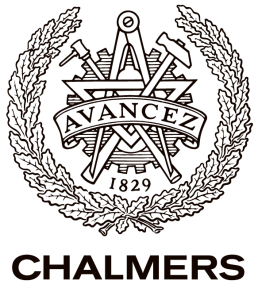Chalmers University of Technology
The University was founded in 1829 following a donation by William Chalmers, a director of the Swedish East India Company. He donated part of his fortune for the establishment of an “industrial school”. Chalmers was run as a private institution until 1937, when the institute became a state-owned university.
Chalmers has partnerships with major industries mostly in the Gothenburg region such as Ericsson, Volvo, and SKF. In the 2011 International Professional Ranking of Higher Education Institutions, which is established on the basis of the number of alumni holding a post of Chief Executive Officer (CEO) or equivalent in one of the Fortune Global 500 companies, Chalmers University of Technology ranked 38th in the world, ranking 1st in Sweden and 15th in Europe. In the latest QS World University Rankings (2015), the university was ranked 132nd in the world (overall). In the latest Times Higher Education World University Rankings 2015/2016, Chalmers ranked between 201 and 250 of all global universities.

Each year, around 250 post graduate degrees are awarded as well as 850 graduate degrees. About 1,000 post-graduate students attend programmes at the university and many students are taking Master of Science engineering programmes and the Master of Architecture programme. From 2007, all Master’s programmes are taught in English for both national and international students.
Around 2,700 students also attend Bachelor of Science engineering programmes, merchant marine and other undergraduate courses at Campus Lindholmen. Chalmers also shares some students with Gothenburg University in the joint IT University project. The IT University focuses exclusively on information technology and offers Bachelor and Master programmes with degrees issued from either Chalmers or Gothenburg University, depending on the programme.
Chalmers confers honorary doctoral degrees to people outside the university who have shown great merit in their research or in society.
Departments
Chalmers have 13 departments. Furthermore, Chalmers is home to eight Areas of Advance and six national competence centres in key fields like Mathematical Modelling, Environmental Science and Vehicle Safety.
- Architecture and Civil Engineering
- Biology and Biological Engineering
- Chemistry and Chemical Engineering
- Communication and Learning in Science
- Computer Science and Engineering
- Electrical Engineering
- Industrial and Materials Science
- Mathematical Sciences
- Mechanics and Maritime Sciences
- Microtechnology and Nanoscience
- Physics
- Space, Earth and Environment
- Technology Management and Economics

